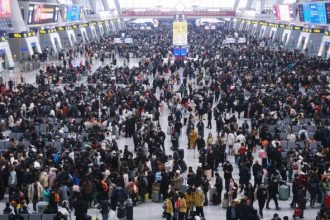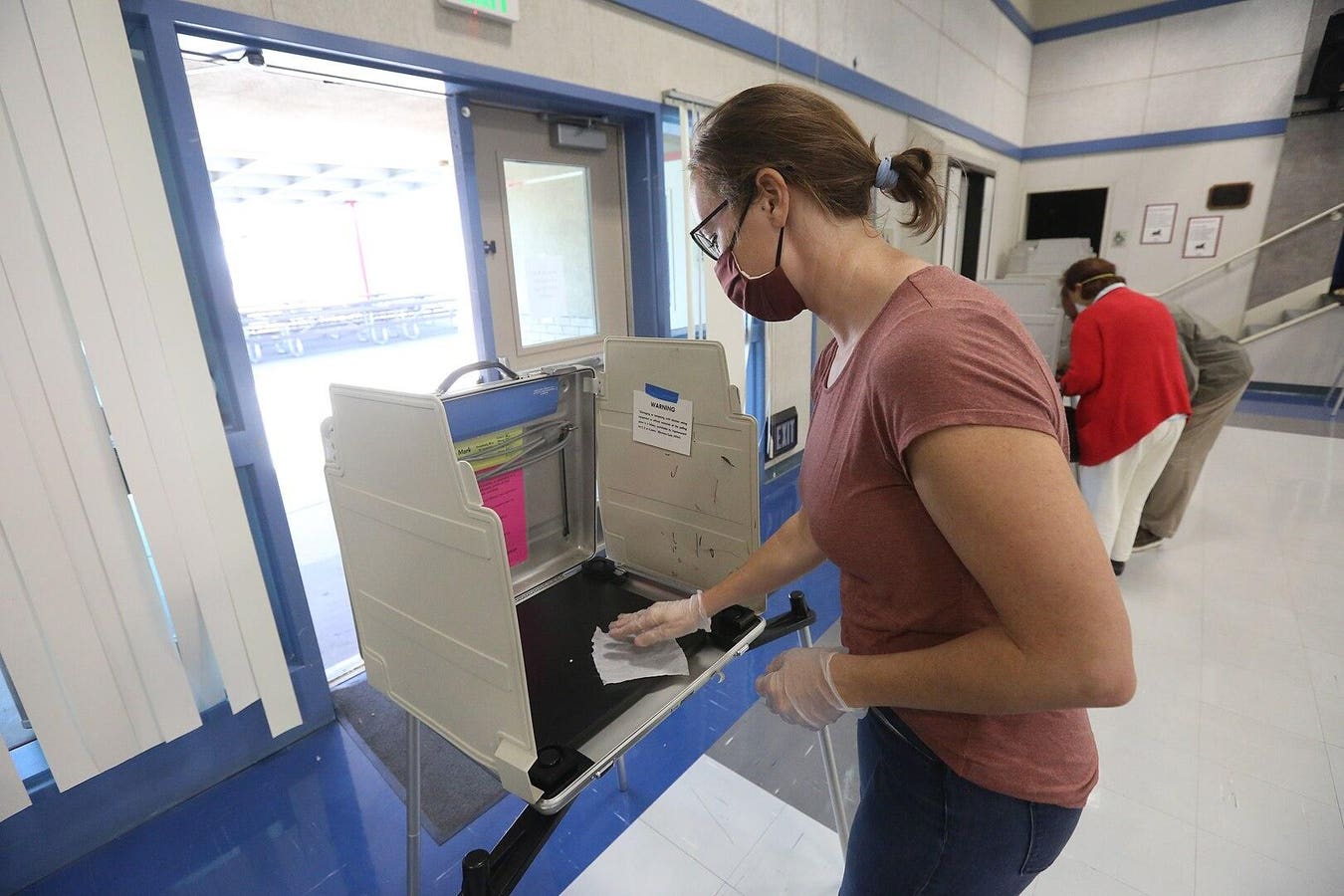During the four decades of East-West tensions known as the Cold War, the concept of national security was focused almost entirely on military challenges. More recently it has also been applied to non-military threats such as pandemics and climate change.
However, politicians and pundits have been slow to recognize what may be the biggest emergent threat to American democracy: efforts by foreign and domestic players alike to subvert the election process.
Elections are the foundation of democracy. Free and open elections, conducted at regular intervals, in which each vote is weighed equally, are the mechanism by which citizens confer legitimacy on those who govern them.
If elections are seriously compromised, either through direct interference or disinformation campaigns, then democracy may fail. Unfortunately, such activity has spiked in the last two presidential elections, and more such challenges may be on the way in this year’s voting.
In 2016, Russian leader Vladimir Putin launched a broad campaign to defeat the presidential bid of Hillary Clinton and discredit the electoral process. According to a recent, heavily redacted report by the U.S. intelligence community, Russian agents assessed the election systems of all 50 states and penetrated some of them.
The Russians also hacked the emails of candidates and political parties, resulting in embarrassing disclosures of private conversations. Some Democrats have alleged that members of the Trump presidential campaign were complicit in these activities, however no evidence of their involvement has come to light.
Russian election interference and influence operations were so widespread that at one point, then-President Barack Obama used the Moscow-Washington hotline to warn Putin of consequences.
In the immediate aftermath of the 2016 election, the Department of Homeland Security designated the election system as critical infrastructure, acknowledging that the integrity of elections had become a national security issue.
Steps were subsequently taken to tighten cybersecurity protections, and the involvement of foreign actors in U.S. elections receded. However, Russia, China and Iran—among others—continue trying to shape U.S. election outcomes.
This year’s elections will likely see further foreign interference, in the form of fake news on social media, ransomware, distributed denials of service and the like.
The 2020 presidential election saw new threats to election integrity, most of it originating from domestic sources. Widespread complaints of election fraud, while unsubstantiated, undermined faith in the system among broad swaths of the population.
Former President Trump played a central role in this trend by insisting his reelection bid had failed due to a “rigged” system.
Election officials have noted a rise in violent threats that began in the aftermath of the 2020 election, and persists to this day. Many such threats appear anonymously on social media, and thus are difficult to gauge as to the danger they pose.
The combination of domestic and foreign threats now prevalent in the U.S. election system pose a danger to democracy’s most basic institution. State and local authorities that conduct elections are often under-resourced and over-worked, leaving them ill-equipped to cope with rising challenges.
Federal funding in the form of grants to these authorities may be necessary to stabilize the system. Such grants should focus on replacing aging voting equipment, updating potentially vulnerable software, training poll workers, improving voter registration databases, and—in some cases—providing better physical security.
Election officials may not be able to convince everybody that fake news about their activities is wrong, but they can at least assure that the underlying processes are reliable and subject to audit.
The level of funding required to strengthen the system is miniscule relative to the size of the federal budget, perhaps an hour’s worth of federal spending annually. In the absence of such assistance, though, the possibility of voting going awry is some jurisdictions is real.
With many elections decided by razor-thin margins, it would not take much to discredit the process and undermine faith in how our democracy operates.
Disclosure: Research for this commentary and a forthcoming report was funded by a grant to my think tank, the Lexington Institute, from the Center for Tech and Civic Life.
Read the full article here





